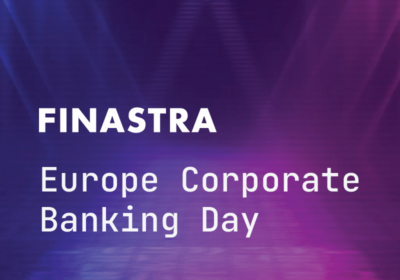How will banks fight back against Big Tech? – Eigen’s 2020 predictions
You don’t need a history degree to know that the end of a decade and the beginning of a new one is bound to raise insecurities, doubts and anxieties. Abandoning the safety of what is known in exchange for the unknown can be scary.
2019 has been the year in which the drumbeat of an imminent economic crisis has felt louder than ever. Warnings about climate change have gotten louder, once stable governments have been toppled, and strong currencies have lost their stability. In the UK and within the EU, an imminent Brexit is fuelling financial and political uncertainty.
All of this doesn’t paint a very optimistic scenario, no matter which business you’re in. But if you’re a bank, you have an additional worry to add to the list: losing business to Big Tech. The only way to fight back is to pursue total data mastery, and at Eigen we’re seeing encouraging signs that banks are up to the task.
Our predictions for 2020:
- NLP solutions will become faster and more accessible
The new versions of NLP models will be less rule-based, with reduced data training requirements. This is thanks to advancements in AI and machine learning that are relevant to NLP, and ultimately thanks to the growing interest in AI that is fuelling these advancements.
Interest in AI has been spreading across most sectors, and techniques are being distributed out to a broader public through open-source AI. More people are using this kind of technology, and the technology therefore is evolving to serve the needs of a more diverse userbase. You don’t need to be a scientist to process AI-based applications, at least in their more simplistic versions.
The next generation of language models arrived on the scene in 2018, and their effects are just beginning to be felt. Spearheaded by BERT (Bidirectional Embedding Representations from Transformers) and its many derivatives, these powerful new NLP tools provide unprecedented speed and reliability across multiple tasks. Eigen’s NLP is already intuitive and fast, and our science team is following each new development closely.
- The next financial crisis will hit
The more we learn about the leveraged loans initially borrowed by corporates at low interest rates, the more we see just how much potential they have to destabilize our economy. Exposure to leveraged lending and borrowing has kept on growing since the crisis in 2008, and we see signs that it’s reaching unsustainable levels. According to the Financial Times, the opinion on Wall Street is that US banks look vulnerable to a leveraged loans ‘cancer’.
Moreover, a stark alarm bell rang earlier this year, as details of the so-called Clover loan collapse were revealed. Almost overnight, a $693 million loan Clover Technologies took to the market five years ago lost a third of its value. We know that leveraged loans are, by definition, neither loans nor securities, meaning that they often fall in between regulatory cracks. The hidden risks are huge. And there are about $1.3 trillion of loans similar to the Clover loan.
The investors and credit funds we work with are increasingly worried about the terms lurking within these loans, and they’re calling in technologies like NLP to understand their risk profile.
We can’t change the fact that the music will eventually stop, but we’re working to make sure financial institutions have safe and stable chairs to sit in once it does. We have a proven way of helping out by automating data extraction accurately and quickly so that the banks, investors, and managers can have access to this critical data at scale.
- Banks will defend their territory against the encroachment of Big Tech. Technology provides them with a great opportunity to win
Big Tech firms like Google, Amazon, and Facebook have been broadening their presence within the financial markets. They have been creating and are about to launch their own cryptocurrencies. The majority of them also offer payment services, such as loans or insurance, and in some cases, wealth management products. According to the Economist, tech giants could even start dispensing financial advice.
How did we come to this?
Big Tech companies are data collection machines by their nature—their business models depend on this ability. Their moves into sectors like payment products are only increasing the size of their nets. When payments information is aggregated and combined with online data from searches and social media profiles, the information a company can gather on any individual consumer becomes mind-boggling.
Big Tech companies are thus becoming a major competitive force on the financial landscape. A recent report by the Financial Stability Board explores the developments of Big Tech’s growth in finances and highlights the threat that this could have on stability.
How should banks respond?
They must respond by getting better at gathering and leveraging their own data, because they have plenty of it. Banks and other financial institutions sit on treasure troves of documentation, almost none of which is easy to turn into usable information quickly. NLP is an important tool for banks to leverage, and we’ve been working side by side with them for nearly five years to ensure that financial data can be easily extracted, processed, and manipulated. NLP’s ability to turn fixed, solid documents into sets of liquid, discrete data points mean that banks now find themselves able to compete with Big Tech on their own turf.
I think of these banks as Dorothy in the Wizard of Oz. (Full disclosure: My wife is a Financial Institutions M&A banker for a G-SIB who happens to be from Kansas.) She realises after no small amount of struggle that what she needed was right under her feet the whole time!
Then there’s the question of transparency and fair play--essential components in any sport, and they play an important role in the financial markets too. As in any other competition, players must stick to pre-established rules and the game must be presided over by referees. If you play any competitive sport, you know that being a skilled player is not enough to win a tournament. What often counts more is the very experience of competition; the familiarity with all competition rules and rites, the knowledge of how to play within these rules, and finally the agility to move freely and score according to a ruled point system. Unlike the Big Tech newcomers, banks are used to rules and regulations. This is what creates market transparency and makes banks trustworthy to the public. Operating in line with financial and governmental laws means also being accountable and responsible, and it ultimately gains you consumers’ trust.
On the other side, regulating Big Tech is proving to be tricky. Internet laws are not yet equipped to scrutinize and tackle every aspect of online business, and many wonder whether regulation should be applied at all. As consumers, we are largely aware of this. It would not be sensible for any of us to place our trust into something that eludes regulatory control. Compliance with regulation earns banks more trust, makes them the preferable choice, and places them one step ahead for all those who look to invest safely. As an example, a recent satisfaction survey sees First Direct (a subsidiary of HSBC) rank first,and beat other online account forms.
This would leave sheer quantity of data as the only advantage Big Tech can still play to, but as we have seen, with NLP, banks have found a quick way to neutralise this and are now able to unleash their own data reservoirs.
Banks are back in the game, and the opportunities are promising. Those who will take them will set themselves up to win.
-
World Economic forum 2020
-
Gartner Cool Vendor 2020
-
AI 100 2021
-
Lazard T100
-
FT Intelligent Business 2019
-
FT Intelligent Business 2020
-
CogX Awards 2019
-
CogX Awards 2021
-
Ai BreakThrough Award 2022
-
CogX Awards Best AI Product in Insurance
-
FStech 2023 awards shortlisted
-
ISO27001
-
ISO22301
-
ISO27701
-
ISO27017
-
ISO27018


















